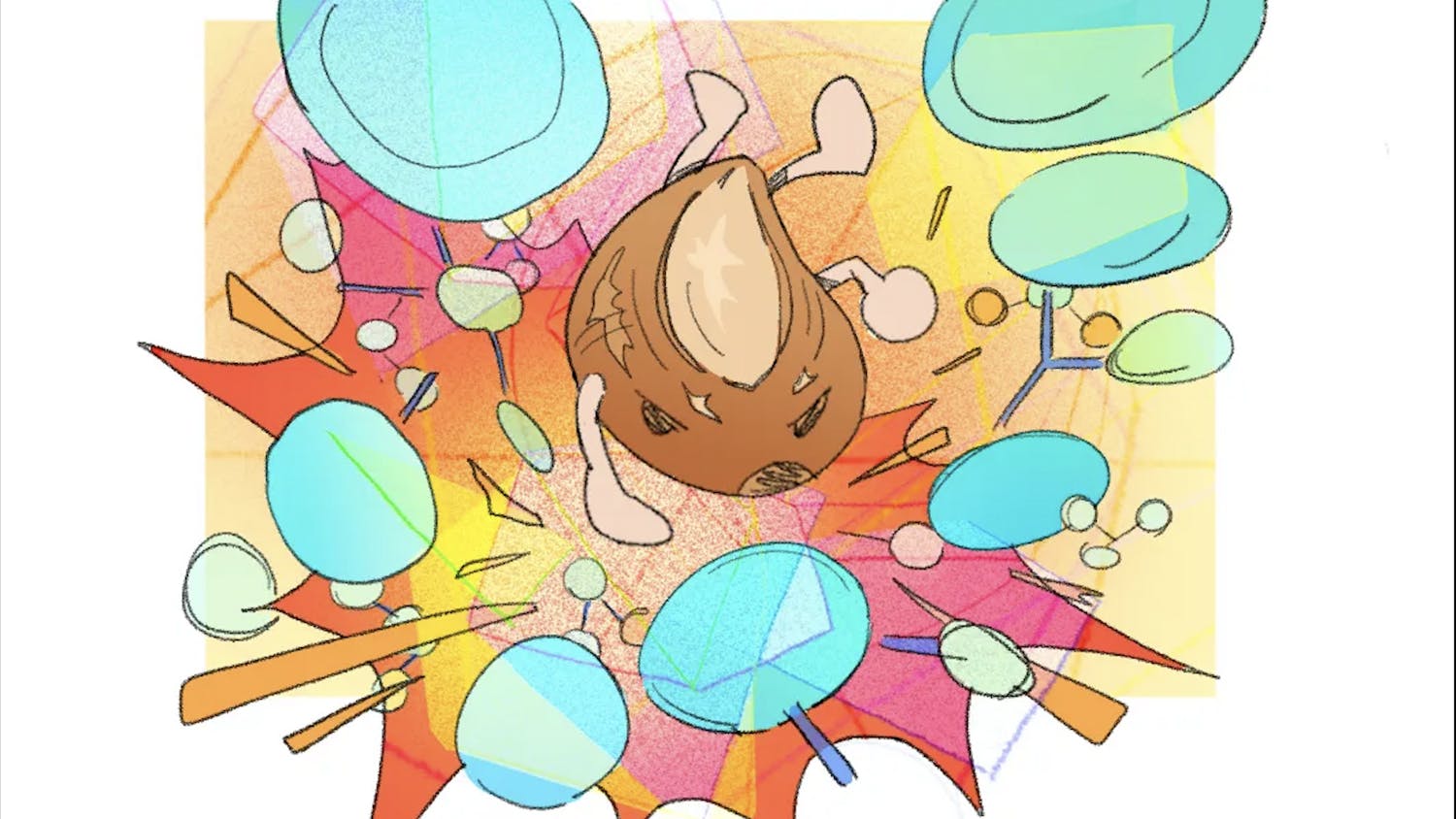The Division of Biology and Medicine, the Gender and Sexuality Studies Program and the Science and the Technology Studies program may seem like three very distinct parts of the University, but they all have at least one thing in common — Anne Fausto-Sterling.
A professor of biology and gender studies, Fausto-Sterling will retire this June after 44 years at Brown. Her career has been extensive, including publishing several books and dozens of articles, teaching thousands of students, and initiating and catalyzing change in departments and fields plagued by gender bias and sexism.
Developing an identity
Fausto-Sterling received her bachelor of arts in zoology from the University of Wisconsin in 1965 and her PhD in developmental genetics from Brown in 1970. She then went on to work as a post-doctoral student with Professor Emeritus of Biology John Coleman. Immediately, Fausto-Sterling began challenging both the gender bias she found in the biology division at Brown and the scientific methodology being used by her male colleagues.
When Fausto-Sterling began working in Coleman’s lab, molecular biology approaches to problems were beginning to dominate the field. “Those approaches were very reductionist — meaning you try to couch things in simple terms and add layers of complexity,” Coleman said. “I don’t think she ever agreed with that approach.”
Fausto-Sterling established herself early on as someone with evolving ideas in the field of biology, he added.
“She was not easy to work with,” Coleman said, laughing while adding that he has always recognized himself as being “one of the few males in our department who could in fact work with her in the classroom.”
Fausto-Sterling said she is often cited as “challenging entrenched scientific beliefs,” which have often overlapped with gender bias.
“(Male) scientists were saying, ‘Well, women can’t do this because they menstruate every month, or they’re weak, or they just don’t have the aggressive personality it takes to succeed,’” she added. “That sent me on a path of really looking (at) where those ideas come from in the biological literature.”
Initiating the interdisciplinary
Despite her extensive career in the fields of biology and gender studies, Fausto-Sterling said she is proudest to have helped establish a new program — Science and Technology Studies. The science and society concentration within STS was not officially approved until 2006, but Fausto-Sterling has been involved in the program ever since it was just a reading group of professors.
Fausto-Sterling said she hopes the program will continue to exist and thrive once she retires. “I think the students who gravitate towards it are especially interesting,” she said, adding that she thinks the program has gained good ground since its inception.
“She has always been the driving force behind getting it from a reading group to the program it is now,” said Tara Nummedal, associate professor of history. Nummedal recently replaced Fausto-Sterling as head of the STS program.
“They’re big shoes to fill,” Nummedal said.
It’s (not) a man’s world
Fausto-Sterling’s impact on gender and sexuality studies at the University as well as women’s rights have also been palpable, many students and faculty members said.
Fausto-Sterling said her favorite moment in women’s history at Brown was the Lamphere v. Brown class action case. In 1974, Louise Lamphere, assistant professor of anthropology, was denied tenure. Lamphere filed charges against the University for sex discrimination, and eventually won her case. As a result, the University instituted new policies regarding the hiring of women.
This action put the University ahead of other institutions in the development of women’s rights, Fausto-Sterling said. “We’re doing a lot better than we were and a lot better than other schools,” she added.
Much of Fausto-Sterling’s work has been focused on continuing to fight gender discrimination and define sexuality in the public image. Fausto-Sterling has written two books for a general audience, “Myths of Gender: Biological Theories about Women and Men” and “Sexing the Body: Gender Politics and the Construction of Sexuality,” according to Fausto-Sterling’s website.
Throughout her career, she has challenged traditional gender norms, such as in her seminal paper “The Five Sexes,” in which she questions the dichotomy of the traditional gender system. Much of her work in gender studies is based on her background in developmental genetics.
Deborah Weinstein ’93, assistant director of the Pembroke Center and director of the Gender and Sexuality Studies Program, met Fausto-Sterling 25 years ago when Weinstein was an undergraduate at Brown. Over the years, Fausto-Sterling became her adviser, mentor and eventual colleague. One of the things that sets Fausto-Sterling and her auspicious career apart from others is her dedication to both scholarship and institutional development, as well as the way she thinks, Weinstein said.
Fausto-Sterling is “an incredibly sharp and critical reader. She has a very insightful way of cutting right to the heart of an issue,” Weinstein said. “These are things that I value tremendously about her.”
A lasting impression
Faculty members and students who have worked with Fausto-Sterling described her as a force to be reckoned with. But undergraduates also found her to be warm, approachable and always willing to help.
Shelby Wilson ’15 said she knew she wanted to be a science and society concentrator as a first-year, but she was not particularly sure why. She made an appointment with Fausto-Sterling “without realizing how big of a deal she was.”
Wilson said Fausto-Sterling was “very sweet and encouraging, but also very direct” in the advice she gave.
Gopika Krishna ’13 MD’17 worked with Fausto-Sterling on her honors thesis and said she always found her to be “really approachable.” She said Fausto-Sterling encouraged her to take the initiative on her own research. “She really wanted to share her knowledge with me, but she also wanted me to develop a lot of thoughts on my own.”
- With additional reporting by Isobel Heck
ADVERTISEMENT




